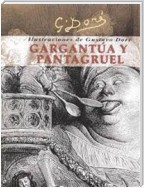François Rabelais

François Rabelais (c. 1494 – 9 April 1553) was a major French Renaissance writer, doctor, Renaissance humanist, monk and Greek scholar. He has historically been regarded as a writer of fantasy, satire, the grotesque, bawdy jokes and songs. His best known work is Gargantua and Pantagruel.
Although the place or date of his birth is not reliably documented, and some scholars put it as early as 1483, it is probable that François Rabelais was born in November 1494 near Chinon, Indre-et-Loire, where his father worked as a lawyer.
Rabelais was first a novice of the Franciscan order, and later a friar at Fontenay-le-Comte, where he studied Greek and Latin, as well as science, philology, and law, already becoming known and respected by the humanists of his era, including Guillaume Budé.
Later he left the monastery to study at the University of Poitiers and University of Montpellier. In 1532, he moved to Lyon, one of the intellectual centres of France, and not only practiced medicine but edited Latin works for the printer Sebastian Gryphius.
Using the pseudonym Alcofribas Nasier (an anagram of François Rabelais minus the cedille on the c), in 1532 he published his first book, Pantagruel, that would be the start of his Gargantua series.
Rabelais later taught medicine at Montpellier in 1534 and 1539.
Between 1545 and 1547, François Rabelais lived in Metz, then a free imperial city and a republic, to escape the condemnation by the University of Paris. In 1547, he became curate of Saint-Christophe-du-Jambet and of Meudon, from which he resigned before his death in Paris in 1553.
 čeština
čeština Deutsch
Deutsch français
français magyar
magyar polski
polski русский
русский English
English Azərbaycan
Azərbaycan беларуская
беларуская italiano
italiano ქართული
ქართული қазақ
қазақ Nederlands
Nederlands português
português slovenčina
slovenčina 中文
中文 español
español








